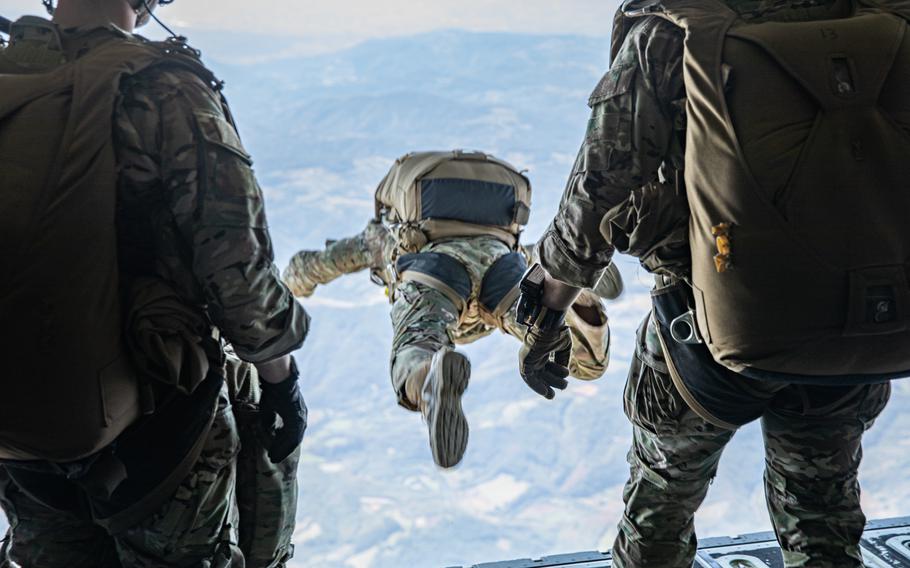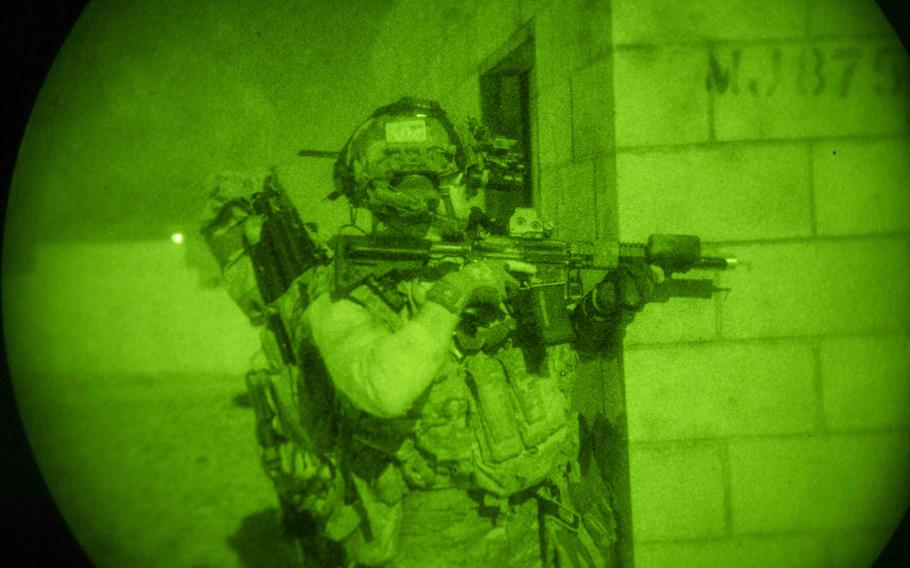
Green Berets from 1st Battalion, 10th Special Forces Group (Airborne) join Serbian counterparts in a jump over Pranjani, Serbia, on Sept. 21, 2024. The Defense Department is not doing enough to ease special operations forces service members' transition to civilian life, according to a Government Accountability Office report. (Kyle Odum/U.S. Army)
The Pentagon is failing special operations forces personnel by not tracking problems they encounter accessing and completing a program for service members transitioning to civilian life, according to a watchdog agency’s report. As a result of that monitoring failure, U.S. Special Operations Command and the Defense Department services may be unaware of Transition Assistance Program shortcomings for special operations forces, the Government Accountability Office report issued Wednesday said.
Transitioning to civilian life can be even more difficult for SOF service members because of the physical and mental strain of rigorous training, multiple combat deployments and other factors, according to the report.
Over the past 20 years, special operations staffing levels across the services rose to about 74,000 personnel in 2022, as the U.S. worked to counter terrorism. But the Pentagon now is refocusing to address threats from peer adversaries, such as China and Russia, the report stated.
As a result, many special operations forces service members remain on active duty or separate from the military. From 2021 to 2023, the time period analyzed by the GAO, some 7,000 of them returned to civilian life, the GAO said.

A Naval Special Warfare operator provides security as part of a nighttime direct-action raid training in California in May 2024. The Pentagon is not doing enough to ease the transition of Special Operations Forces service members who choose to leave the military, according to a Government Accountability Office report. ( Alex Smedegard/U.S. Navy)
The program, known as TAP, is required for all service members leaving the military. The Defense Department estimates that more than 500,000 members will participate in the program over the next few years, according to the GAO.
The study evaluated data related to special operations forces’ participation in TAP, which includes information and training designed to guide departing service members toward employment, higher education and other opportunities.
While SOF personnel generally completed the mandated training at a higher rate than other service members leaving the military, just 39% began the program a year or more before their separation date as required, the report said.
“It is imperative that service members planning to leave military service start accessing transition programs on time to fully leverage existing resources and transition activities,” the report authors wrote.
And without a thorough Pentagon analysis of TAP, service members transitioning out of special operations could be prevented from fully realizing the program’s benefits, according to the report.
In its review, the agency found that a high operational tempo, delays in medical assessments and other problems kept special operations personnel from starting TAP on time and participating in related activities.
That hold-up was more acute for lower-ranked enlisted special operations forces personnel when compared with those of higher enlisted ranks or officers, who may have more control over their schedules, the report found.
Active-duty SOF service members and veterans told the agency that “there also is tension within a command that is trying to balance operational and mission needs with the ability to support transition program requirements.”
The GAO recommended that U.S. Special Operations Command and the services analyze TAP participation and other data annually and develop plans to address problems if needed. The Pentagon concurred with the recommendations.